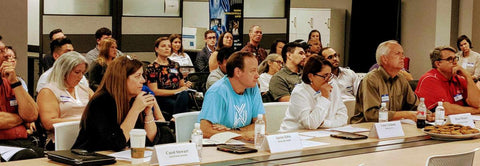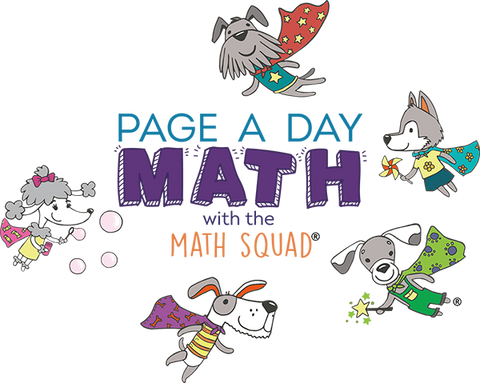
Why Starting Math Early Is A Good Idea

At what age should you begin teaching children their math facts? The answer may be earlier than you think.
Research shows that school success and achievement in the middle school years can be linked to the math skills children have when they start school. In fact, the link is so profound and far-reaching, that one of the nation's top economists and math research experts, Greg Duncan, named early math skills as the best predictor of later success. (Duncan, Greg, et al. School Readiness and Later Achievement. American Psychological Association, 2007. Vol. 4. No. 6. 1428-1446.)
That's more than behavioral skills - more than social skills - and even more than literacy skills.
Here is just one of my first-hand experiences.
One of my most eye-opening experiences came when I began teaching pre-algebra at one of the nation's top charter schools. When I started the job, I was quickly brought to reality by the fact that many of the children did not have a good grasp of the basic math facts needed for the higher-level pre-algebra work.
So, in addition to assigning daily practice in math facts to the entire class, I made myself available at lunchtime - every day - for the entire school year. I encouraged everyone to come. Some students came and some didn't.
What was so startling was the transformation that took place in the children who came consistently! These kids started out in tears, hating math, and not believing in themselves. But by the end of the year, they were earning A's and B's! And even better than that - they had a newfound confidence. They knew they were smart!
What worked the magic? The answer is simple. They had regular practice learning their basic math facts in just a relatively short amount of time per day. Don't miss the most important takeaway from this - it's profound and worth repeating. It was knowing their basic math facts (knowledge gained with just short practice sessions daily) that made all the difference in these students' ability to perform higher-level math.
So when do you start teaching math facts?
The earlier the better. Preschool through 3rd grade is the optimal time to build a strong math foundation (Mongeau, Lillian. "Early Math Matters: Top Researcher Discusses His Work." EdSource December 1, 2013. www.edsource.org.).
But It's OK if you didn't start early.
But what if your child didn't receive solid math basics in the preschool through 3rd-grade years? The good news is it's not too late. As my personal story shows, even short, daily sessions spent practicing basic math facts can work miracles. The key is consistency over time.
Automating your child's ability to recall the basic math facts in addition, subtraction, multiplication, and division not only helps them perform higher-level math quickly and efficiently, but it also builds crucial number sense and a deeper understanding of how math really works. And it can transform how they feel about learning and themselves. I have seen, with my own eyes, children go from not feeling like they're smart to having confidence and knowing that they are a "math person".
In a later article, we will explore some of the best ways to catch up if you didn't start early.
About the Author and Creator of Page A Day Math
 Janice Marks
Janice Marks
Janice began her career in education to pursue teaching pre-algebra at BASIS Tucson North, a charter school currently ranked as the sixth-best STEM school in the country by Newsweek. There she found joy in teaching math, working with parents, and inspiring children to believe in themselves and thrive. This experience, along with helping her own children succeed in math, led her to develop the Page A Day Math system.





